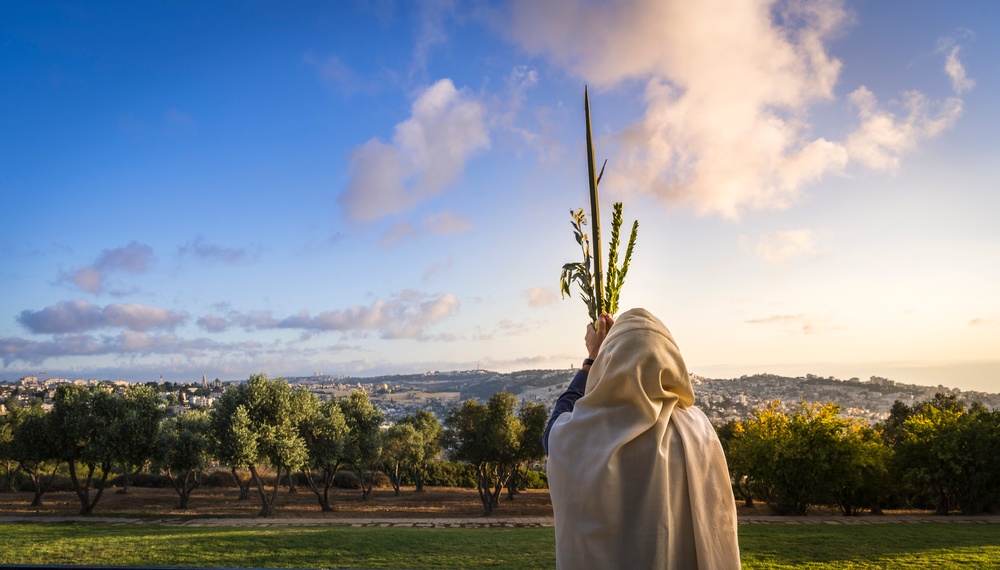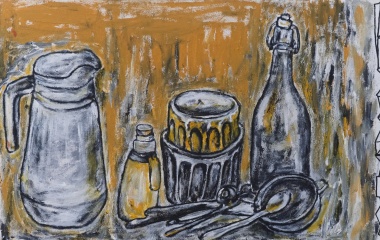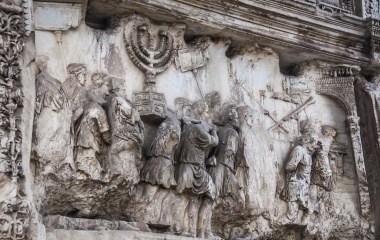
|
We live in an age of specialization. Whether it is business, medicine, sports, Torah, or technology, we train people to be expert in one small area, so that people today know increasing amounts about less and less. Trying to do too many things will often result in none being done particularly well.
Apparently, this notion has Talmudic roots, at least as it relates to the celebration of Yom Tov. "Rabbi Eliezer says: A person on Yom Tov has only[1] to eat and drink, or to sit and learn. Rabbi Yehoshua says: Divide it, half for G-d and half for you" (Beitza 15b). Rabbi Yehoshua's view is most understandable. Yom Tov is a joyous time, celebrating G-d's special relationship with the Jewish people. We must dedicate half the day to G-d in prayer and study, singing songs of praise and thanksgiving, and deepening our understanding of the encounter between G-d and man through the study of Torah. At the same time, we are flesh and blood, and "there is no joy except with meat...and wine (Pesachim 109a)". This idea fits beautifully with the Jewish notion that holiness is best demonstrated by the elevation and sanctification of physical life. Eating and drinking, and prayer and study are differing methods of worshipping G-d.
However, Rabbi Eliezer had a very different view of Yom Tov. "The joy of Yom Tov [through eating and drinking] is optional" (Beitzah 15b). One who desires good food and drink should "party" away, and one who finds joy through study should study all day long. But to do both will do justice to neither. People at a party are in no mood to hear a shiur, and those who are engrossed in study have neither the time nor the patience to spend a few hours at a meal. By giving people the option of celebrating Yom Tov in a manner of their choosing, the Jewish people, as a whole, will celebrate Yom Tov "half to man and half (well, maybe less than half) to G-d".
While Rabbi Eliezer gives one the option of how to celebrate, his preference is quite clear. "Our Rabbis taught: One time, Rabbi Eliezer was sitting and teaching the laws of Yom Tov all day long. When the first group left, he said 'they are the owners of big barrels'" (ibid). As Rashi explains, those who left the lecture so early must have lots of food waiting for them in their "barrels", and thus needed more time to eat. As each of the next four groups walked out of theshiur (there really is nothing new under the sun), Rabbi Eliezer commented on the decreasing size of the food bins they must have had. As a sixth group got up to leave, Rabbi Eliezer said, "They are to be cursed". With so few people remaining at the shiur, those who left were even more noticeable, leaving the study hall practically empty (Rashi). "He put his eyes on his students (i.e., he glared at them), and their faces began to change. He said to them, 'Children, it is not to you I speak, but to those who have left, who abandon eternal life and are involved in temporal life'. As is often the case, one is forced to rebuke those who need it least--because those who need it most ensure that they never hear it [2].
The language "who abandon eternal life and are involved in temporal life" is that used by Rabbi Shimon bar Yochai in defence of his view that one should eschew involvement in the physical world, dedicating one's life only to spiritual pursuits. As for sustenance, "their work will be done by others" (Brachot 35b). After spending twelve years in a cave, he emerged; and upon seeing one involved in farming he lamented that they "abandon eternal life and are involved in temporal life". G-d castigated him, telling him He did not sustain him to destroy the world, and sent him back for another year to "decompress" (Shabbat 33b).
Normative law rejects the view of Rabbi Shimon bar Yochai in favor of the more moderate view of Rabbi Yishmael that one should combine work and study. "Many did like Rabbi Yishmael and succeeded, and many did like Rabbi Rabbi Shimon bar Yochai and did not succeed". So, too, Jewish law rejects the view of Rabbi Eliezer, accepting the more balanced approach of Rabbi Yehoshua.
But as is often the case when our Sages present radically different worldviews, the rejected view maintains a place in our tradition. It may be appropriate for some and reflect important notions for all, even if it is not meant to be fully implemented. While many who did like Rabbi Shimon bar Yochai did not succeed, a select few did.
The Gemara notes that both Rabbi Yehoshua and Rabbi Eliezer were working from the same biblical texts. "And the two of them, one text they explicated. One verse says a 'convocation unto the Lord your G-d' (Devarim 16:8) and one verse says 'a convocation it should be for you' (Bamidbar 29:35)". The Torah deliberately described Yom Tov in contradictory fashion[3], enabling our Sages to develop different approaches to the observance of Yom Tov. While in practice, Jewish law rules like Rabbi Yehoshua that we are to "divide it, half to G-d and half to you", the view of Rabbi Eliezer helps mold our view of the nature of Yom Tov as a day dedicated to strengthening our relationship with G-d. Chag Sameach! [1] As is clear from the context of the Gemara, Rabbi Eliezer does not mean one should fast, or even not have a Yom Tov meal. Rather, the overarching focus should be on learning (or eating).
[2] The Maharsha quotes a fascinating explanation that Rabbi Eliezer's anger was due to the fact that this later group did not observe Yom Tov properly according to either view. By leaving theshiur early they were not learning all day. And by staying in the shiurfor as long as they did, delaying the meal, they failed to properly observe the "half for yourself". Rabbi Eliezer then addressed those who remained after this sixth group left.
[3] This is one of the most important--and often neglected--principles in the study of Tanach. As we say every day in "Rabbi Yishmael omer", the Torah is full of contradictions; and when not contradictory, much of the Torah is ambiguous. These features allow, encourage, and demand that we study our texts with a multiplicity of approaches. We will have to leave for another time elaboration of this important subject (see here for a short piece I wrote addressing this subject). |



